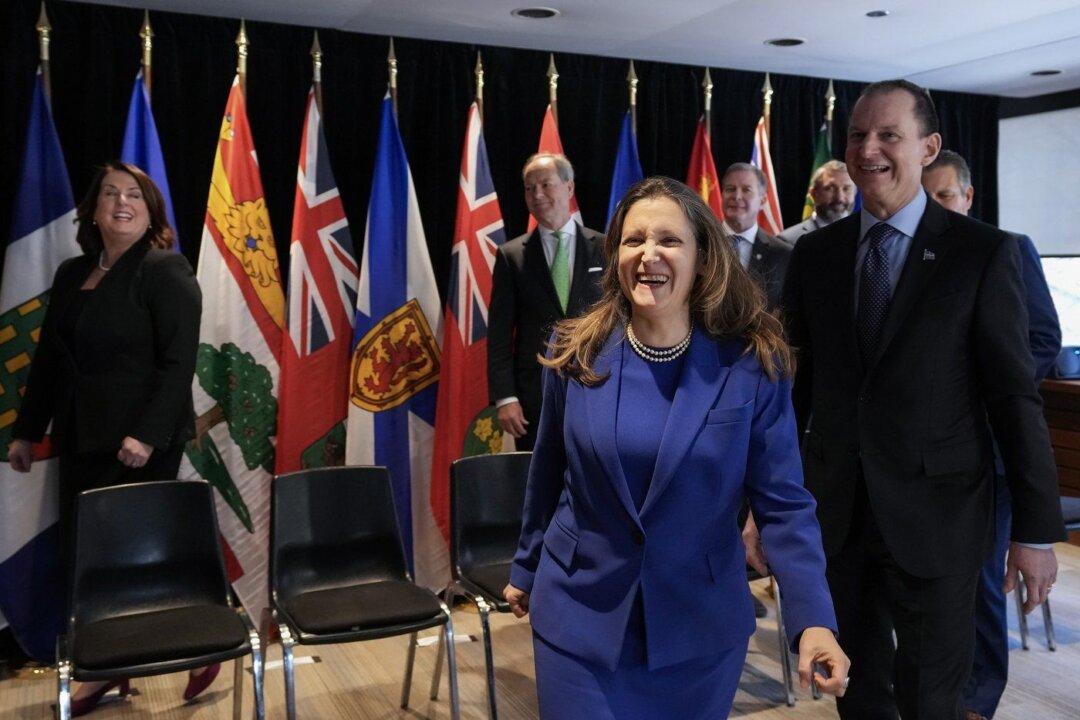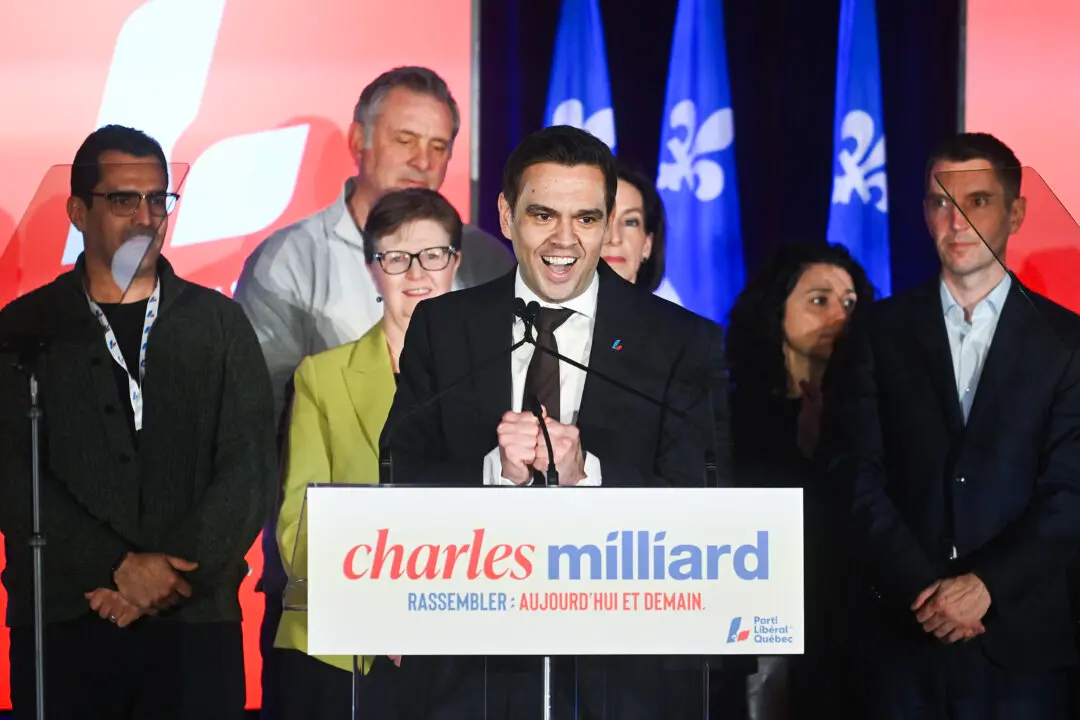The two big spending pressures on the federal government right now are health care and the global transition to a clean economy, Deputy Prime Minister and Finance Minister Chrystia Freeland said Friday.
After hosting an in-person meeting with the provincial and territorial finance ministers, Freeland said U.S. President Joe Biden’s Inflation Reduction Act, which includes electric-vehicle incentives that favour manufacturers in Canada and Mexico as well as the U.S., has changed the playing field when it comes to the global competition for capital.





